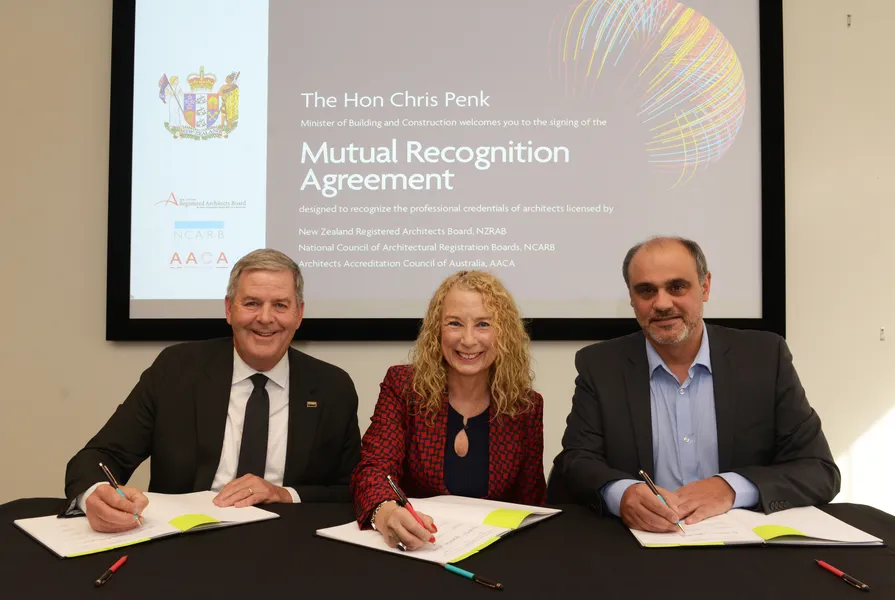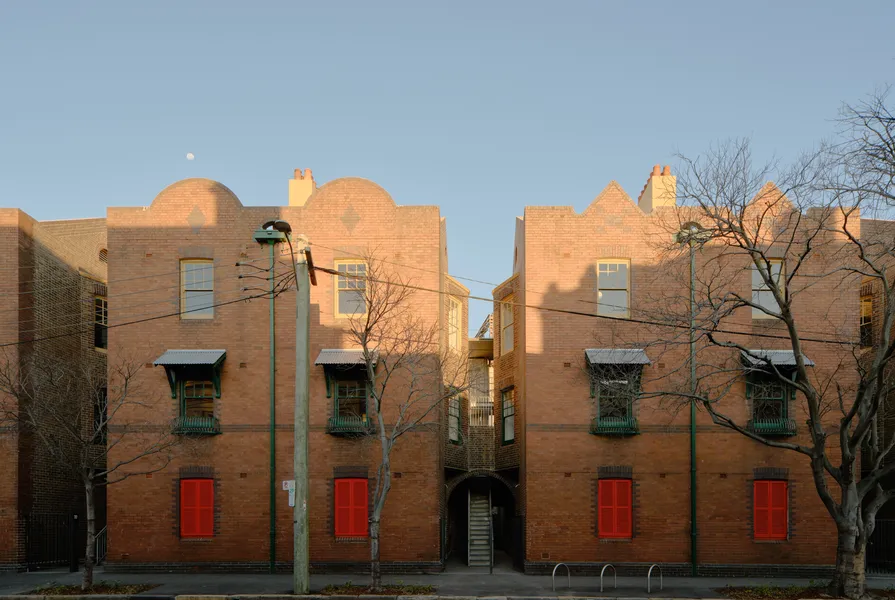- by architectureau
- 21 May 2025
New mutual agreement for architects to practice abroad in US, NZ
This August, leaders of the Architects Accreditation Council of Australia, USA National Council of Architect Registration Boards and New Zealand Registered Architects Board have agreed on a new Mutual Recognition Agreement
- by architectureau
- 28 Aug 2024
- in architects

On 21 August 2024, leaders of the Architects Accreditation Council of Australia (AACA), USA National Council of Architect Registration Boards (NCARB) and New Zealand Registered Architects Board (NZRAB) agreed on a new Mutual Recognition Agreement at an event in Wellington, New Zealand.
The new agreement revises an existing Mutual Recognition Agreement with the United States, improving access to international practice by removing the requirement to hold one of the three national passports, expanding eligibility requirements and streamlining data laws.
One of the key benefits of the new agreement is that architects no longer need to work the previously mandated 6,000 hours (approximately three years) after registering to apply, meaning that newly registered architects are able to participate. As AACA president Dr Giorgio Marfella pointed out, "This new agreement further strengthens opportunities for sharing know-how and creativity, providing easier processes of exchange and recognition for architects at all levels of experience."
In Australia, New Zealand and most US states there are no additional examinations beyond local registration and successful completion of the Mutual Recognition Agreement. While some US states may have additional requirements, it is expected that the new changes will boost the number of US states participating in the agreement.
Speaking of agreements already in place between Australia and the United Kingdom, Singapore, Japan, Canada, and New Zealand, AACA chief executive officer Kathlyn Loseby commented that the "mutual recognition programs are helping local architects to go global. We've already seen the success of our United Kingdom agreement, with more architects moving both ways across borders."
Registered architects will be able to apply for fast-tracked recognition of their qualifications from 6 November 2024.
- by foxnews
- descember 09, 2016
United Airlines flight returns to Hawaii after concerning message found on bathroom mirror; FBI investigating
United Airlines Flight 1169 to Los Angeles returned to Hawaii after a "potential security concern" aboard the plane. The FBI and police are investigating.
read more





